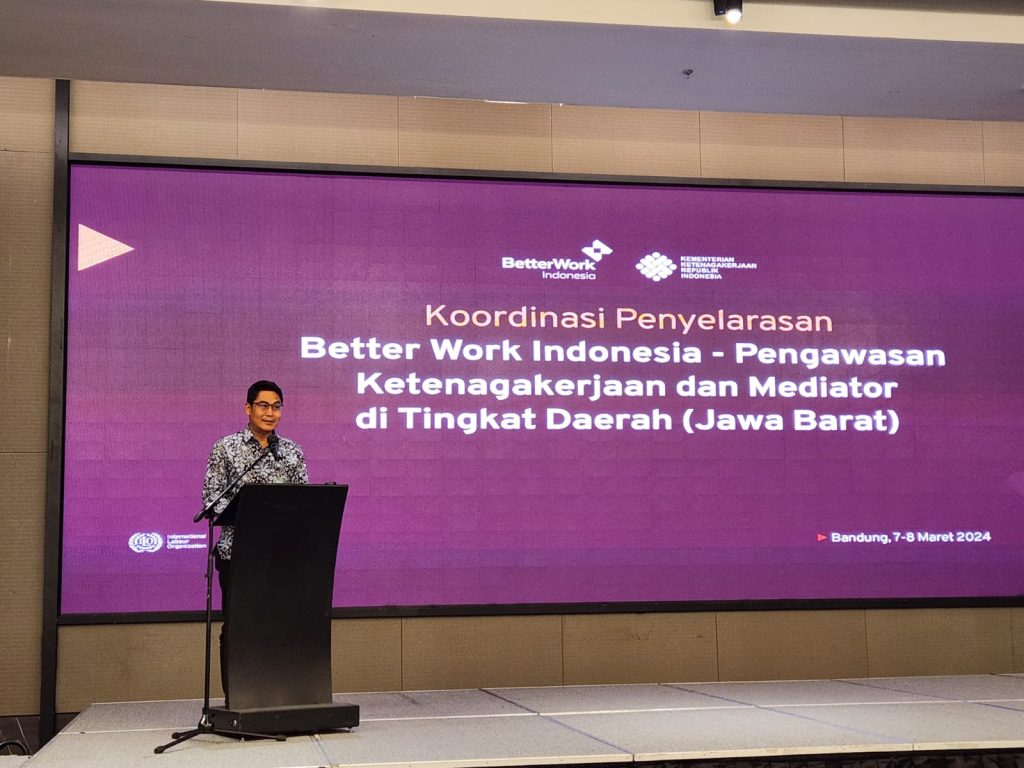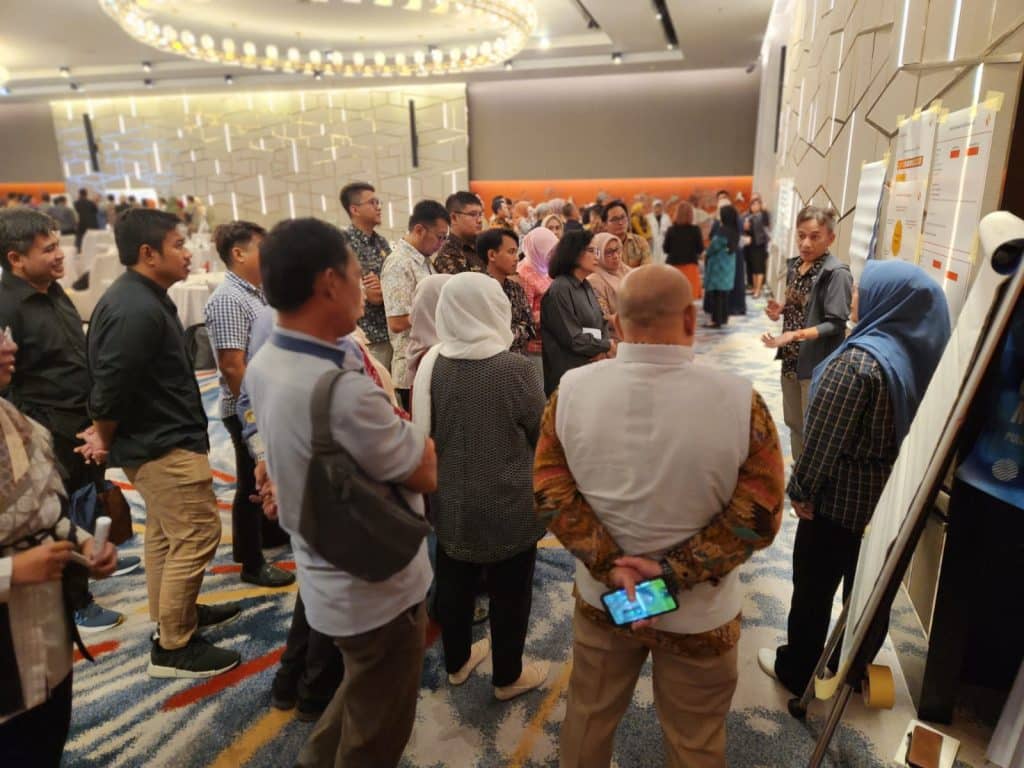WEST JAVA, Indonesia – About 100 government officials, labour inspectors and Better Work Indonesia (BWI) representatives attended a workshop highlighting the work of the programme in Bandung, West Java, last month.
BWI Program Manager, Arron Goldman, set the stage for the workshop by indicating it would be a platform for robust discussions, delving into the intricacies of current approaches to the sector, potential gaps, and actionable solutions.
“Better Work Indonesia is here not just as a facilitator but as a committed partner in the journey towards creating a labour landscape that is not only compliant, but also sets the standard for ethical and sustainable practices,” Goldman said.
The workshop held in West Java was the second meeting in a series planned for this year, following the initial workshop in Yogyakarta in December 2023. BWI plans to hold similar workshops in Jakarta and Banten to further its goal of improving labour relations and supporting workers’ rights throughout the country.


One key goal of the workshop was to introduce representatives from the Manpower offices to the Better Work Indonesia programme. BWI conducted an interactive survey using an online polling tool to assess their knowledge of the programme. Attendees were prompted to respond anonymously to a series of questions on a large screen using their mobile phones.
The survey showed that most attendees had heard of BWI, without having in-depth knowledge of its work. Their descriptions of BWI ranged from a “compliance factory” to “life improvement for workers”. The majority also recognized BWI’s collaboration with stakeholders.
BWI Executive Director Olivia Krishanty introduced the programme’s core services and its impact at the factory level during the workshop.
Krishanty noted that BWI’s methodology involves a blend of assessment and hands-on advisory services, aiming for sustainable improvement rather than temporary compliance. This approach is designed to promote collaboration between factories, labour inspectors, and mediators to ensure that labour laws are interpreted correctly, and improvements are beneficial to workers, she said.
Currently, over 200 factories in the garment and footwear sectors partner with BWI, representing almost 400,000 workers.
Participants took part in a “World Café” session rotated between three booths, each dedicated to a specific aspect of the Better Work Indonesia programme—assessment, self-diagnosis, and advisory and learning. They spent 15 minutes at each station, exchanging ideas and perspectives before moving on to the next.
The workshop focused on four main themes: perceptions and applications of labour norms, the balance between business continuity and compliance with labour standards, BWI’s programme model, and opportunities for collaboration.